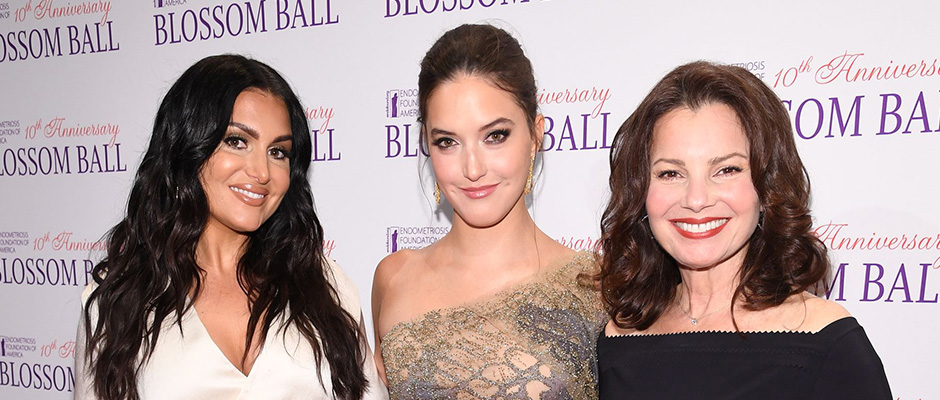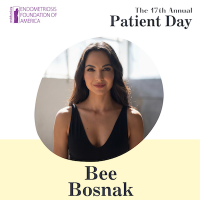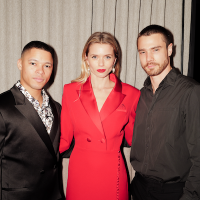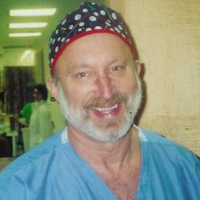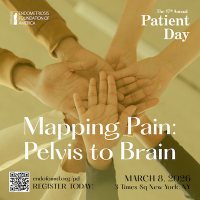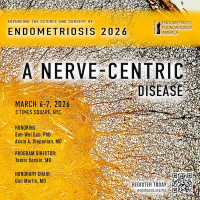Blossom Ball 2019
WEDNESDAY, MAY 8TH - Cipriani Wall Street
Hi, I'm Molly Qerim and Happy 10th Anniversary to EndoFound.
Thank you for supporting 1 in 10 women with endometriosis.
How did you first become involved in women's health advocacy, specifically for endometriosis?
Last year, when I attended the Blossom Ball, I was empowered to speak out and tell my story. After hearing so many women were suffering and the hack surgeries they were getting and being forced to have hysterectomies at young age. I had endometriosis for a very long time, but was diagnosed at about the age of 27. So being here, actually last year at this event, I decided to tell my story because I felt like if it could help at least one person then it was worth it to open up.
I am Diana Falzone. Happy 10th Anniversary to the Endo Foundation.
How did you first become involved in women's health advocacy, specifically for endometriosis?
Well, for endometriosis it has significantly impacted my life when I was diagnosed with endometriosis. I am a 1 in 10 woman. And after I had my first surgery, I got a lot of my information from endofound.org. And then when I realized how many women have this disease and that it's not curable, we needed to do as much as we possibly could and speak out about endo and raise awareness.
So I was fortunate enough to link up with the Endo Foundation and begin working with them and try to get the word out about endo.
One piece of advice I could give to women who have endometriosis, or the symptoms of endometriosis, and think they might is advocacy. You are your best advocate for your body. So if you think something is wrong, then trust that. And if you have a diagnosis that you should always find a specialist in the field, someone who really understands endometriosis because it's a tricky disease and not every gynecologist has the expertise to understand it.
Thank you for supporting 1 in 10 women with endometriosis.
I'm very happy that we're having our 10th Anniversary at EFA. I feel very proud of everything we've done.
I hope that it will achieve more funding by our government for endometriosis research. It's really deplorable how much funding goes into this disease a year. It's like 7 to 11 million dollars. It should be 700 to a billion dollars because 10% of all women have it. That's what I would say.
And then just if you could give one piece of advice to women suffering with endometriosis who haven't been diagnosed?
Just to find help. I mean, get a proper diagnosis because your fertility is at risk, but more importantly your health and well-being is at risk.
I am very proud of what our organization has done because I think I've achieved one of the goals that Tamer... Tamer and I both have achieved one of the goals that we really wanted which was to raise awareness and raise awareness we have. Now there are all these other organizations, Endo Sisters, Endo Warriors. I follow the hashtag on social media and every time I see a new one it makes me really happy because I think these are the seeds of our labor. These people, these young women, are also organizing and taking what they've learned from us and branching out. And as an organization like ours, that is the best and most you can ask for, that other people then go out with your message. And so I'm very proud of us starting that wave of awareness. Nobody knew how to say endometriosis 10 years ago, I mean, doctors did but barely.
Certainly. Now that the conversation is starting, I guess, moving forward from that what would you like to see specifically in the future?
I would like insurance companies to cover testing for endometriosis. I would like to have a better way to get diagnosis without doing laparoscopy and a biopsy. I would like to be able to talk opening about women's periods and girl's periods because that's how every human being comes into the world and so the stigma that we have around menstruation is ridiculous and arcane and has no place in a civil, enlightened society.
Hi. I'm Aliah Baldwin and Happy 10th Anniversary to EndoFound.
My part began with my own journey with endometriosis. Growing up I didn't have any symptoms so most of my life I was a very healthy kid. And then when I turned 22 that kind of turned around and that's how I found Dr. Seckin and I was very lucky within that year, only a year's time, to have met him as such an amazing doctor and get things under control.
But after that experience and learning of other woman's stories and how they go without a diagnosis and in pain, I couldn't imagine being 15 and going to high school in that state physically, so that was kind of my biggest driving force to be involved with the organization and open up on my social media about my journey and that has been the closest women's health thing to my heart, so.
Yeah, certainly. And just, I guess, in searching and trying to find someone to help treat endometriosis, what advice would you give to women out there who are as you know it takes and average of about seven years for women to gone this, so what advice would you give for finding the proper treatment [inaudible 00:07:04]?
I would say my biggest lesson is to never stop searching, even if someone's discouraging to you, a doctor who doesn't believe you or doesn't know. You might notice he's not helping anymore. Just keep searching and keep going until you find someone who listens to you and understands and genuinely wants to help. Because I think that's the biggest issue is education and awareness and compassion because a lot of doctors are men and they don't necessarily understand what that feels like as a woman, so.
Certainly.
Not that all men don't. Dr. Seckin obviously does. But, yeah, I'd say never stop searching and trying things that you may not have tried before, whether it's acupuncture or exercise. But the most important thing is never stop searching for that doctor who works for you.
Certainly. And from the medical community, what's the one thing you would like to see change in the future?
What I would like to see changed? I think the biggest core issue, in my opinion, is education. Most doctors are ill informed or barely taught about endometriosis. I think they should know the statistics and realize that being in that much pain is not normal as a woman. You should feel like you're going through childbirth almost every month. So I think that's more the root of it and doctors just being not... There's just no focus on endometriosis unless you go out of your way to find it. So I'd say and to remove the stigma and the taboo of women's health, bleeding, periods. Happens to all of us, so.
Yeah. Definitely. Thank you so much for sharing your story.



